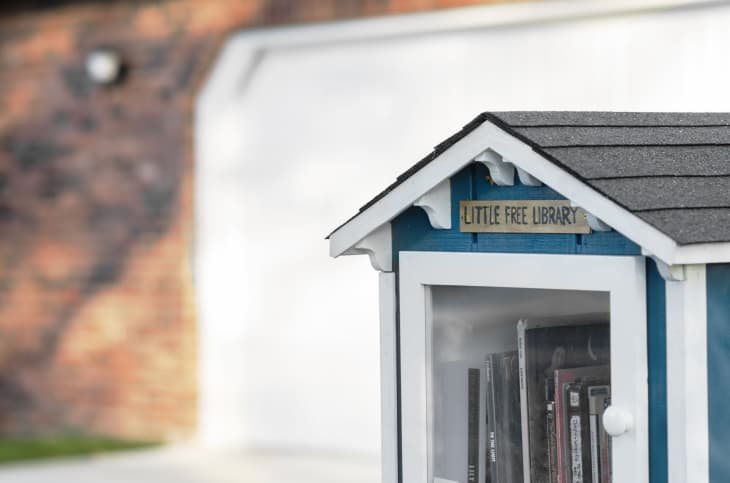7 Ways to Help Your Neighbors During the Coronavirus Pandemic

The global coronavirus pandemic is, well, downright frightening. Schools have shut down, cleaning products have sold out, businesses have shuttered, and even the busiest of public transit systems have been left eerily abandoned.
But even in this time of panic, people have been able to come together to help each other out. While there will always be things that remain beyond our control, there are steps we can take to stop the spread of coronavirus, like washing our hands regularly, practicing social distancing, and helping those around us who need assistance.
Ahead, find seven more ways to help your neighbors, your loved ones, and your community right now.
Reach out to neighbors and acquaintances
Right now, the CDC and WHO are recommending that people utilize a method called social distancing. This means you should stay at least six feet away from other people to help prevent the spread of disease, as well as avoid large gatherings of people. While this is an effective way to prevent the spread of germs, it can also be incredibly difficult to handle emotionally. It’s a lonely time for many without the ability to hug, kiss, or even stand close to those they love.
Because some people are lacking physical closeness, it’s important to check in with not just those you love, but anyone you know who might be having a hard time. Even if it feels like people in your neighborhood are healthy or at low risk for developing a severe case, this is a time when sending a text message (or even a postcard!) is imperative to let people know they’re not alone.
Make it a point to ask your neighbors what kind of assistance they need
Everyone’s needs will look different during this pandemic—and everyone’s ability to help will look different, too. While some of us may be able to shop for groceries for people who can’t, other people might be better off simply lending an ear over Google Hangouts chats.
Either way, we’ll never know the needs of those around us unless we make an effort to ask. You can do this by leaving notes in your neighbors’ mailboxes or posting on your social media accounts. If you haven’t joined NextDoor yet, now is a good time to get in touch with your neighbors through the online platform. It’s also worth checking to see if a Facebook group has been created for your neighborhood or town. (If not, consider starting one!) Even if you discover a neighbor needs something you can’t provide personally, you probably know someone else who can help.
Leave a note on your door or front lawn
The elderly—who are a higher-risk population for developing complications associated with the coronavirus—might not use their social networks to reach out for help. For this reason, it might be effective to leave a note on your apartment door or your front lawn letting your neighbors know how you’re willing to help.
Your note can include your name and contact information, and what you feel comfortable doing to help out your neighbors. For example, you could let people know that you’re a healthy 28-year-old who lives alone and is willing to go grocery shopping and purchase supplies. Or, if you’re an immunocompromised person, you can explain that you’re available to talk on the phone, host a video chat, and more.
This great idea has garnered attention on Twitter after one user posted a printable flyer that makes getting the word out and extending a helping hand easy:
Disinfect wherever you can
If you have to go out in public—say, to go to work, the grocery store, or to drive someone to get medical care—it wouldn’t hurt to bring along a pack of disinfectant wipes and wipe things down as you go. Not only will it give you peace of mind, but it could also save others from being infected. On your next walk, you could take them with you and disinfect mailboxes for the postal workers, or disinfect the door handles in your apartment building.
Don’t overshop
Yes, it may be tempting to get everything you possibly can when you’re at the grocery store. But keep in mind: The more you take, the less someone else can have. If you’re healthy, buying eight boxes of disinfectant wipes might mean you’re preventing someone who is sick from accessing them.
While it’s true you should buy more than you normally do during a grocery store trip (to avoid having to leave the house more than necessary), try to only have a 30-day supply of food and drink on hand. The grocery store will be restocked again soon.
Leave out boxes of books and magazines
Now’s the perfect time to start your own Little Free Library, whether it’s in your apartment building or on your street. Put some books you’re willing to part with in a box for your neighbors, and make sure to disinfect any new books before taking them back home.
Stay inside
The best thing that we can all do for our communities (and beyond!) is to stay home to prevent the spread of the virus and flatten the curve.
And while you’re self-quarantining, it might be a good idea to check in with yourself. It’s tempting to make sure you’re up to speed on the latest number of cases, but obsessively checking the news can cause spikes in anxiety. Many yoga studios are hosting their classes online, and YouTube is chock full of guided meditations that might help to keep us all calm.
Stay sanitized!